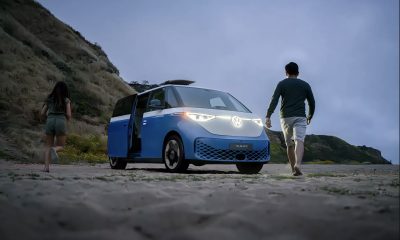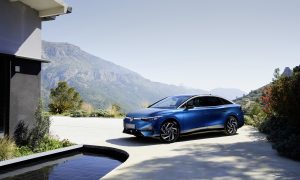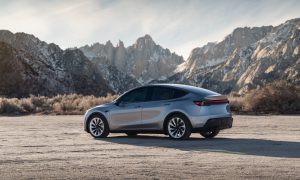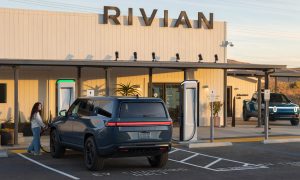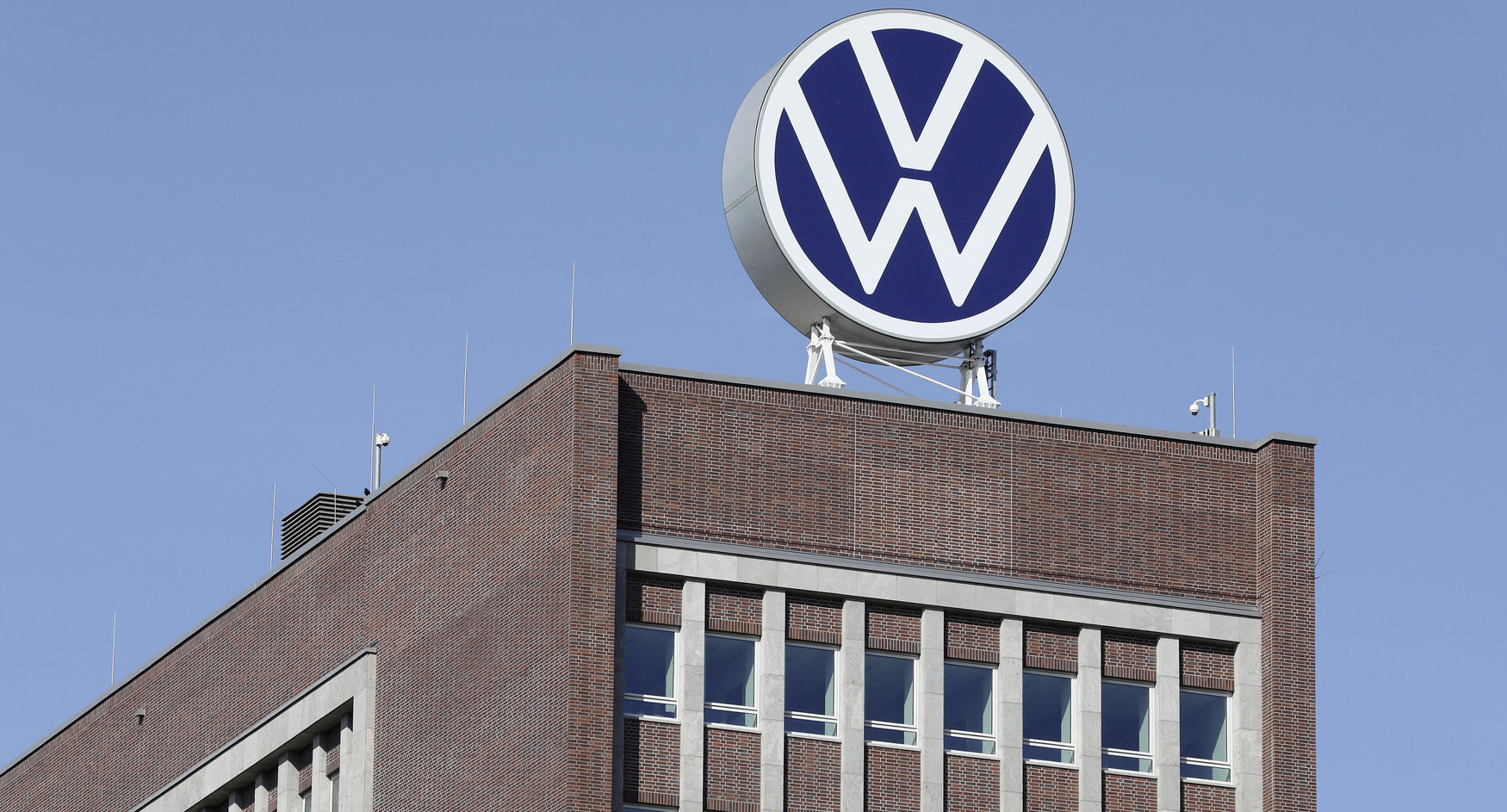

News
Volkswagen’s Power Day: Six new cell plants, new unified battery cell, charging network partnerships
Earlier today, German automaker Volkswagen held its first-ever “Power Day” event. Similar to Tesla’s Battery Day, Volkswagen outlined its plans for reducing the cost of electric vehicles, how it will supply battery cells for its massive EV push, a new “unified” battery cell, and the how company’s charging network is being funded by BP and other European-based energy companies.
Batteries and Cell Production
Every company involved with electric vehicles knows that to reduce the cost of its cars, sourcing batteries is 9/10ths of the battle. Batteries make up a substantial portion of an electric vehicle’s overall cost. With increased battery production and purchasing, EV makers hold the ability to lower the cost of their vehicles overall. Tesla outlined this last September at its own battery-focused event.
Volkswagen’s roadmap isn’t much different than Tesla’s. The company plans to increase cell production in Europe by a substantial margin, developing six new cell factories that will be fully operational by 2030.
“Together with partners, we want to have a total of six cell factories up and running in Europe by 2030, thus guaranteeing security of supply,” Thomas Schmall, Member of the Board of Management of Volkswagen Group for Technology and CEO of VW Group Components, said. The six new factories will produce cells with a total energy value of 240 GWh per year by the time they are finished. Two of the factories will operate in Sweden, with one in Skellefteå and another in Salzgitter. The Salzgitter factory will produce cells for VW’s “high-volume segment” starting in 2025 and will have up to 40 GWh per year of capacity.
Additionally, the company said that it “has decided to refocus the previous plan in relation to cell production and concentrate production of its premium cells in the Swedish gigafactory “Northvolt Ett” in Skellefteå in collaboration with Northvolt.” This factory will begin producing cells in 2023 and will be expanded to a final annual capacity of 40 GWh.
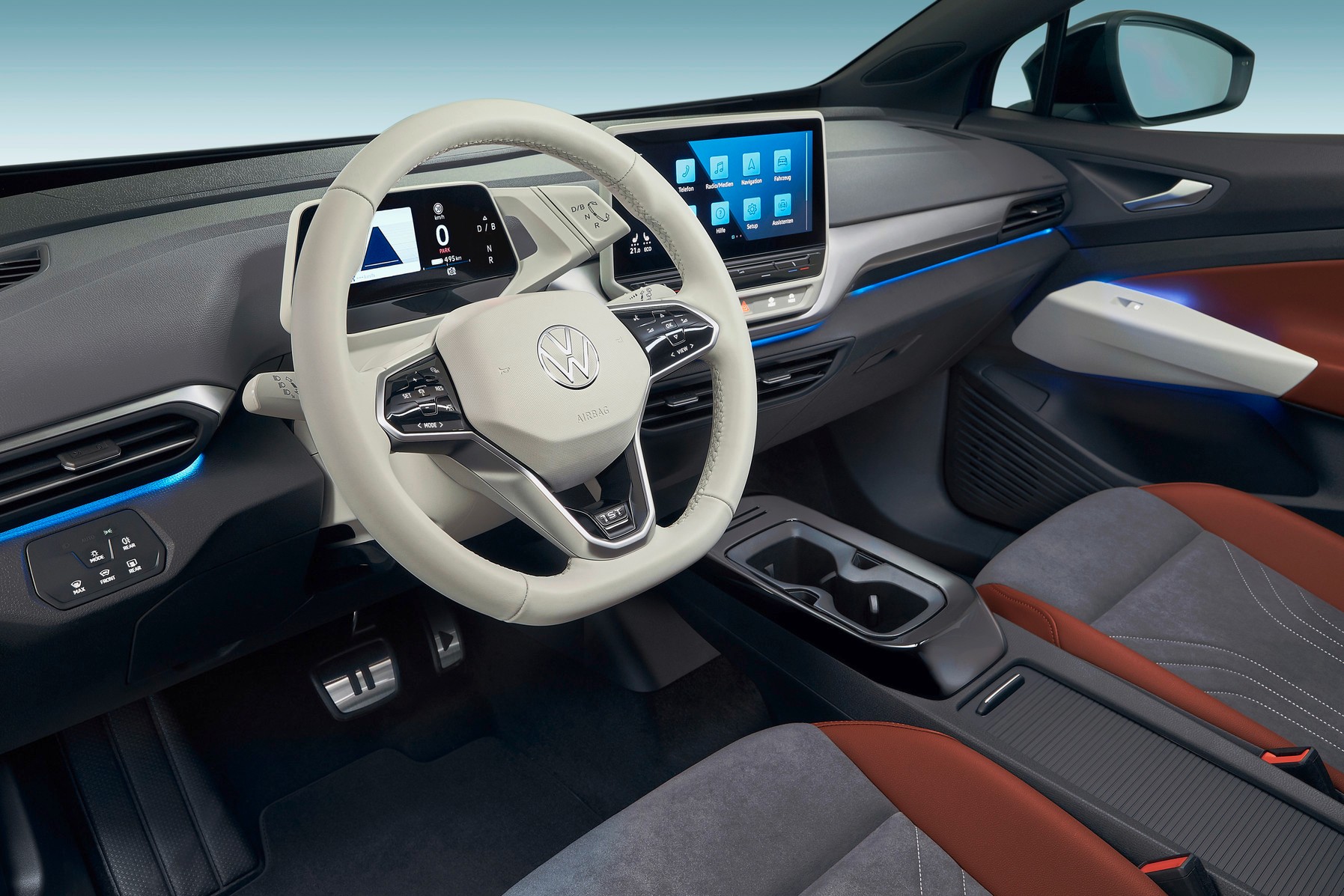
Credit: Volkswagen
New Unified Battery Cell in 2023
Volkswagen’s plan to reduce costs is funneled through battery developments and improvements. Schmall outlined this with the idea of new, more cost-effective cells that will increase range and performance. “This will finally make e-mobility affordable and the dominant drive technology,” Schmall said.
While Volkswagen plans to purchase cells from suppliers, it also plans to create cells in-house within a series of battery production facilities. In 2023, a new, unified cell will be launched and installed in 80% of the Volkswagen group’s electric vehicles. “We will use our economies of scale to the benefit of our customers when it comes to the battery too. On average, we will drive down the cost of battery systems to significantly below €100 per kilowatt-hour,” Schmall added.
“Integration of the Value Chain”
In an attempt to secure the long-term supply of its battery cells to alleviate any concerns over its transition to electromobility, Volkswagen says it will focus on partnerships with selected strategic partners. “The new prismatic unified cell also offers the best conditions for the transition to the solid state cell – the next quantum leap in battery technology, which Volkswagen anticipates for the middle of the decade. The Group focuses consistently on strategic partnerships and efficient use of resources both for batteries and for charging,” VW said. Additionally, the VW Group said it will adhere to its strategic financial targets and will continue to aim for a 6% CAPEX ratio by 2025. It also plans to have a net cash flow of more than €10 billion in its core automotive business.
Charging Network fueled by partnerships with BP, Iberdrola, Enel
Volkswagen isn’t only working on its battery plans. The company also is working on expanding its charging platform by calling upon European power companies to help with the rollout. Partnerships with IONITY and BP will establish 8,000 new charging points throughout Europe. Additionally, 4,000 150 kW chargers will be installed at BP and ARAL service stations in Germany and Great Britain. Spain-based Iberdrola will assist Volkswagen with main traffic route coverage in Spain, and Italian company Enel will help with main and urban motorways in Italy.
Volkswagen says its total investment package for the charging infrastructure will cost around €400 million by 2025 and is looking for other companies to partner with.
In North America, 3,500 fast-charging points will be installed by Electrify America by the end of the year. In China, 17,000 will be installed as well.
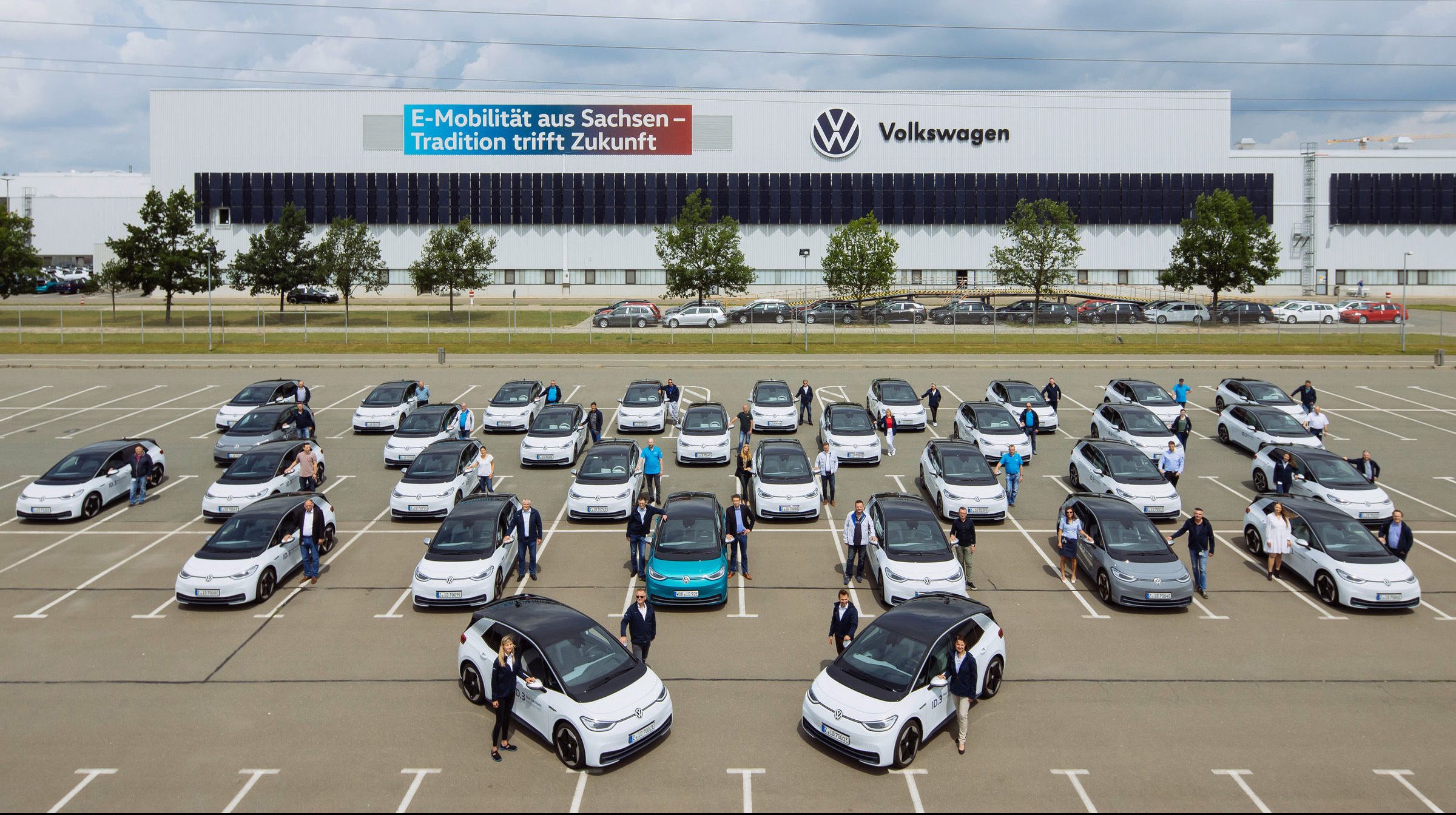
Credit: Volkswagen
Planned V2G Capability
While Volkswagen says it intends to “integrate the electric car in private, commercial and public energy systems in the future,” it says that vehicles using the MEB platform will support energy storage capabilities starting in 2022. Bidirectional wall boxes to energy management systems will be developed as well, allowing owners to supply power to residential buildings, businesses, or the general power grid when needed.
Volkswagen’s full Power Day event is available below.
https://www.youtube.com/watch?v=vdnRfNwj1Fg
Elon Musk
Elon Musk confirms Grok 4 launch on July 9 with livestream event
The rollout will be accompanied by a livestream at 8 p.m. Pacific Time.
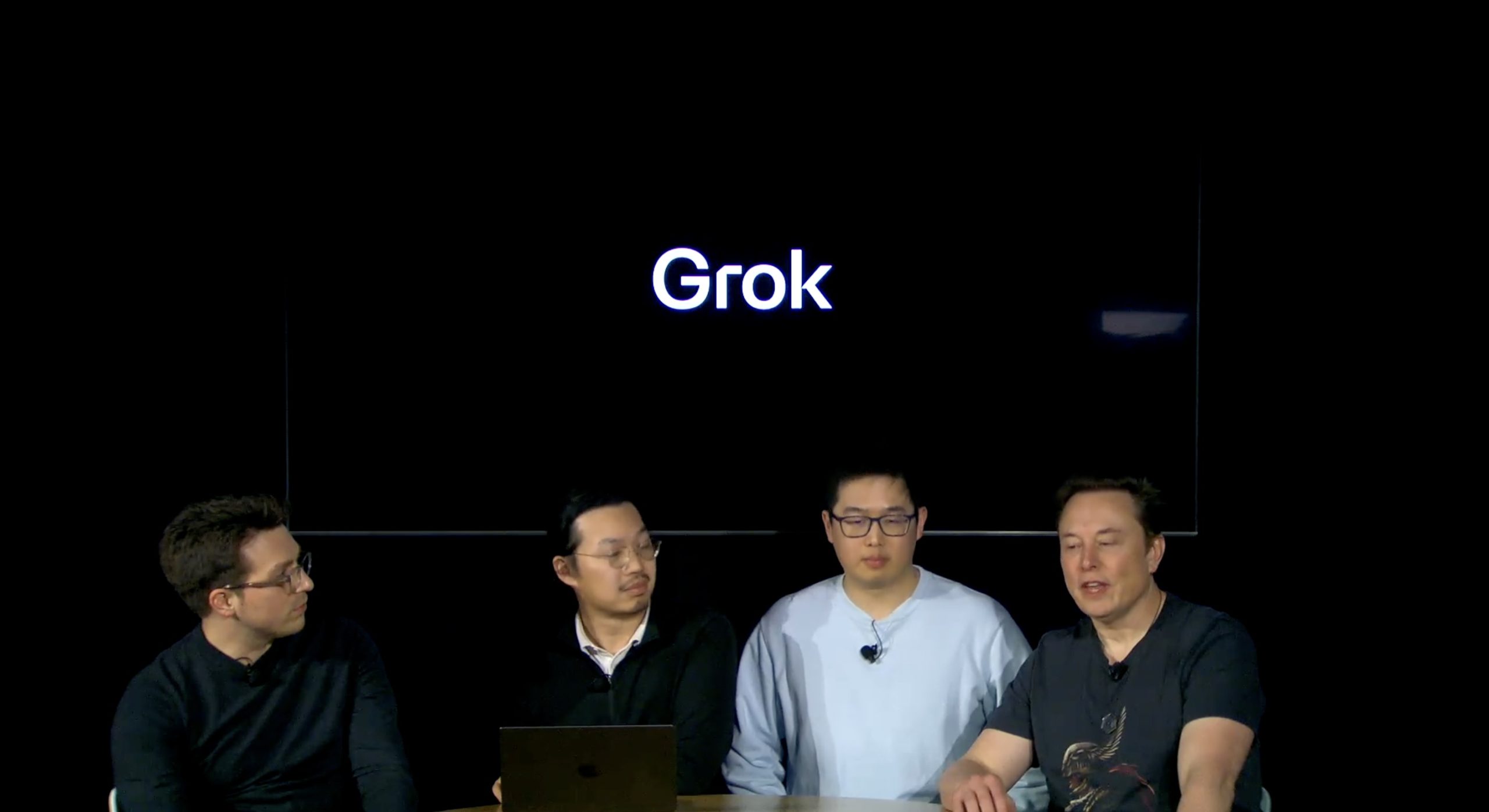
Elon Musk has officially confirmed that Grok 4, the latest version of xAI’s large language model, will launch on July 9. The rollout will be accompanied by a livestream at 8 p.m. Pacific Time, hosted on xAI’s official account on X.
xAI goes straight to Grok 4
Back in May, leaks indicated that xAI was getting ready to ship Grok 3.5. Considering Musk’s recent comments, however, it appears that the artificial intelligence startup would be focusing on the large language model’s fourth iteration instead. As noted in a Financial Express report, users on X have sighted references to Grok 4 in the lead up to the update’s launch, such as “grok-4-prod-mimic” and “Grok 4 Code.”
Musk’s Grok 4 announcement comes as AI competition intensifies between major players including OpenAI, Google, and xAI. With Musk’s Colossus supercomputer fully operational in Memphis, xAI appears to be accelerating its AI product roadmap.
Musk pushes Grok toward political neutrality
Grok 4’s launch also follows a recent controversy involving political bias, as noted in a CNN report. Last week, Grok responded to a user on X stating that political violence in the U.S. since 2016 had come more from the political right than the left. The chatbot noted in a later reply that its answer was based on information from sources like Reuters, the Journal of Democracy, and University of Maryland studies.
Musk stated that Grok’s response was a “major fail.” “Major fail, as this is objectively false. Grok is parroting legacy media. Working on it,” he wrote in a post on X. By the end of June, Musk noted that he was “grinding all night with the xAI team” and that they were making “good progress.” He also stated that the model “Will be called Grok 4. Release just after July 4th. Needs one more big run for a specialized coding model.”
News
Tesla opens massive solar Supercharger station in California
The Supercharger opened to customers ahead of Fourth of July weekend, while Tesla continues phase two of construction on the site.
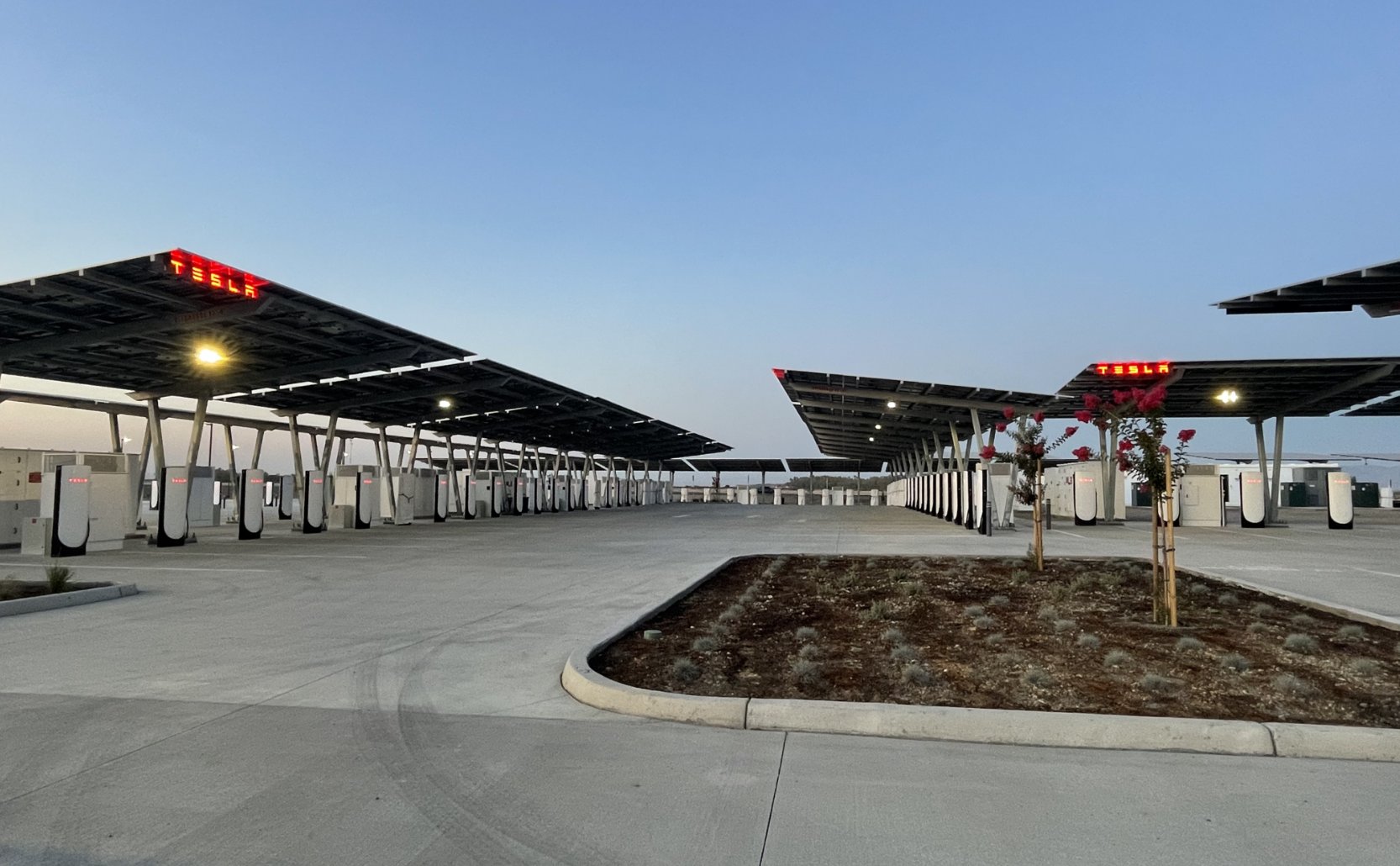
Tesla has officially launched the first several Supercharging posts at a massive station in California, notably including solar canopies and grid-scale batteries to offer completely renewable charging.
Last week, Tesla announced on X that it opened the first 84 Supercharger stalls of a planned 168-stall station in Lost Hills, California. Additionally, the massive Supercharger project features 11MW of solar canopies and 10 Megapack batteries for off-grid charging powered entirely by solar energy.
Tesla completed the first phase of the project just days ahead of the busy Fourth of July holiday weekend, adding that initial construction took just eight months. In addition to the remaining charging stalls, Tesla says it’s building a set of lounge areas, renderings of which can be seen below alongside current photos of the site.
Notably, the site also includes V4 charging posts for the company’s latest available charging speeds, and it’s located near the busy junction between I-5 and Highway 46 in Kern County.
“Thank you [Kern County] and [PG&E] for collaboration and approvals,” Tesla wrote in a follow-up post.
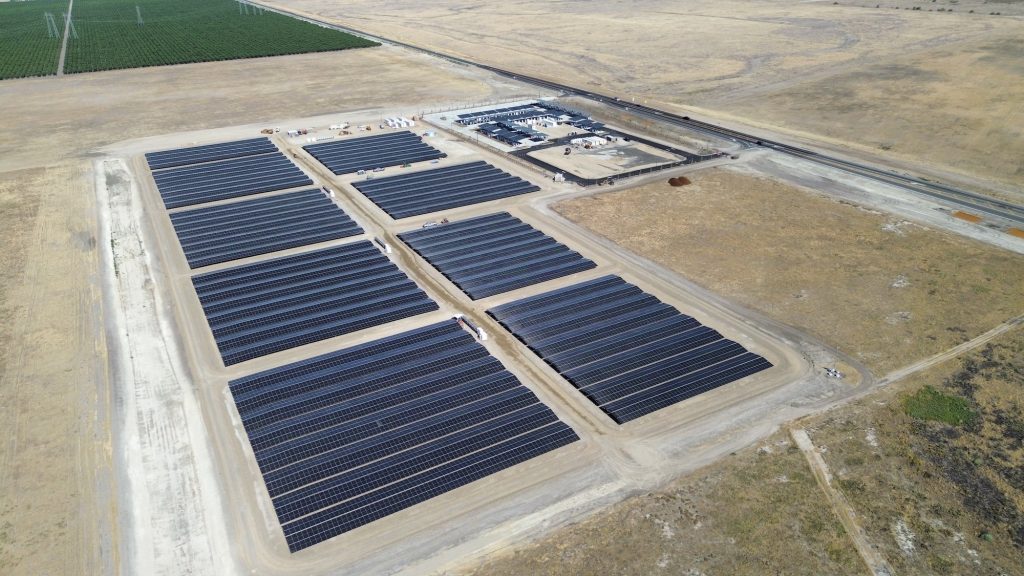
Credit: Tesla Charging | X
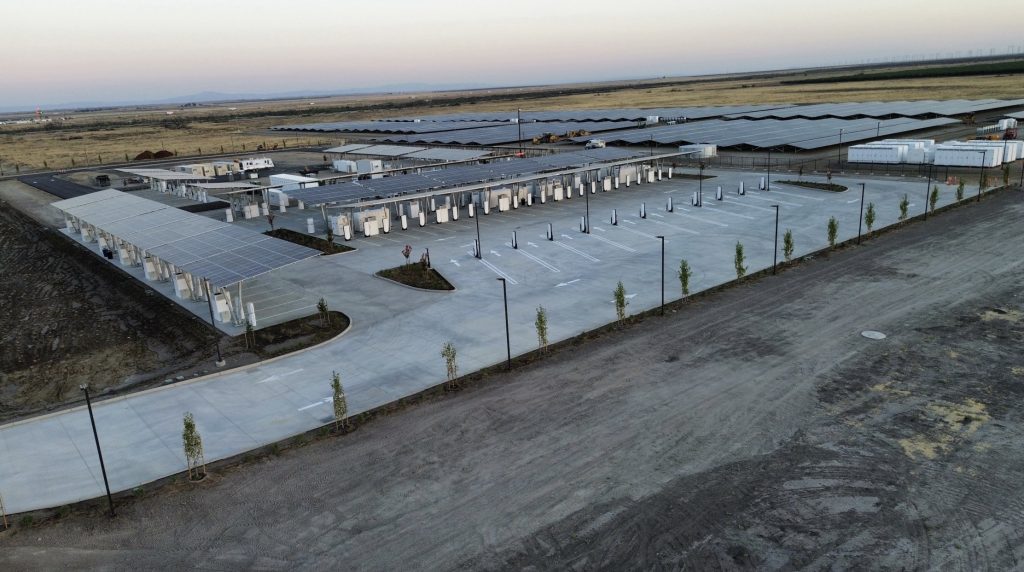
Credit: Tesla Charging | X
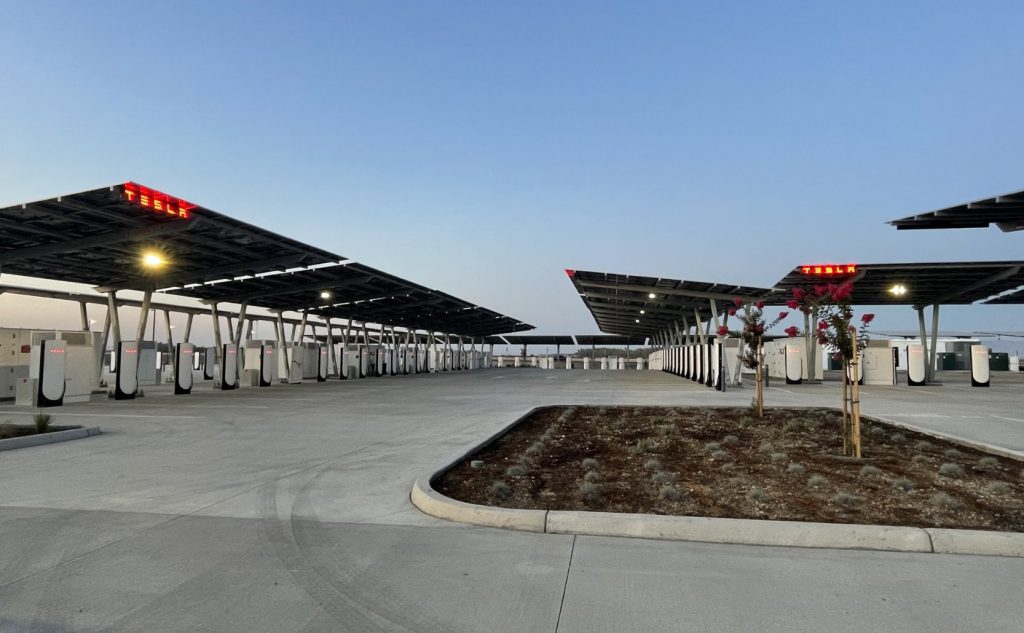
Credit: Tesla Charging | X
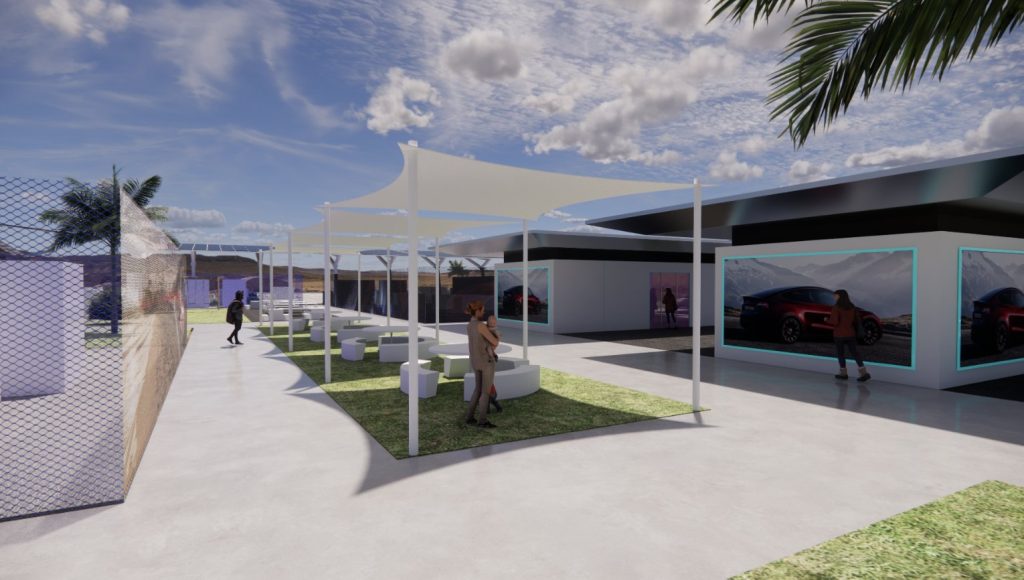
Credit: Tesla Charging | X
Tesla Supercharger Maps for North America, Europe, and Asia pic.twitter.com/0U5r0XRPyo
— TESLARATI (@Teslarati) July 2, 2025
READ MORE ON TESLA SUPERCHARGERS: Tesla launches ultra-fast V4 Superchargers in China for the first time
Testing at the LA Diner, plus Musk update on potential Tesla solar Gigafactory
The huge Tesla Supercharger station completed phase one of construction fairly quickly, especially given how long Tesla has been working on its unique Los Angeles diner, drive-in, and Supercharger location. Still, the company was seen performing some testing at the nearly-completed charging station earlier this month, and will reportedly be holding a job fair.
Elon Musk also responded on Monday morning to a post on X, suggesting that Tesla is “thinking about” building a U.S.-based solar Gigafactory in order to help support increased power needs with AI growth, and to bolster domestic solar production.
Tesla is building a new UFO-inspired Supercharger in the heart of Alien country
News
Tesla driver walks away from major accident with minor injuries
The driver sustained only minor injuries, and the exact cause of the crash remains under investigation.
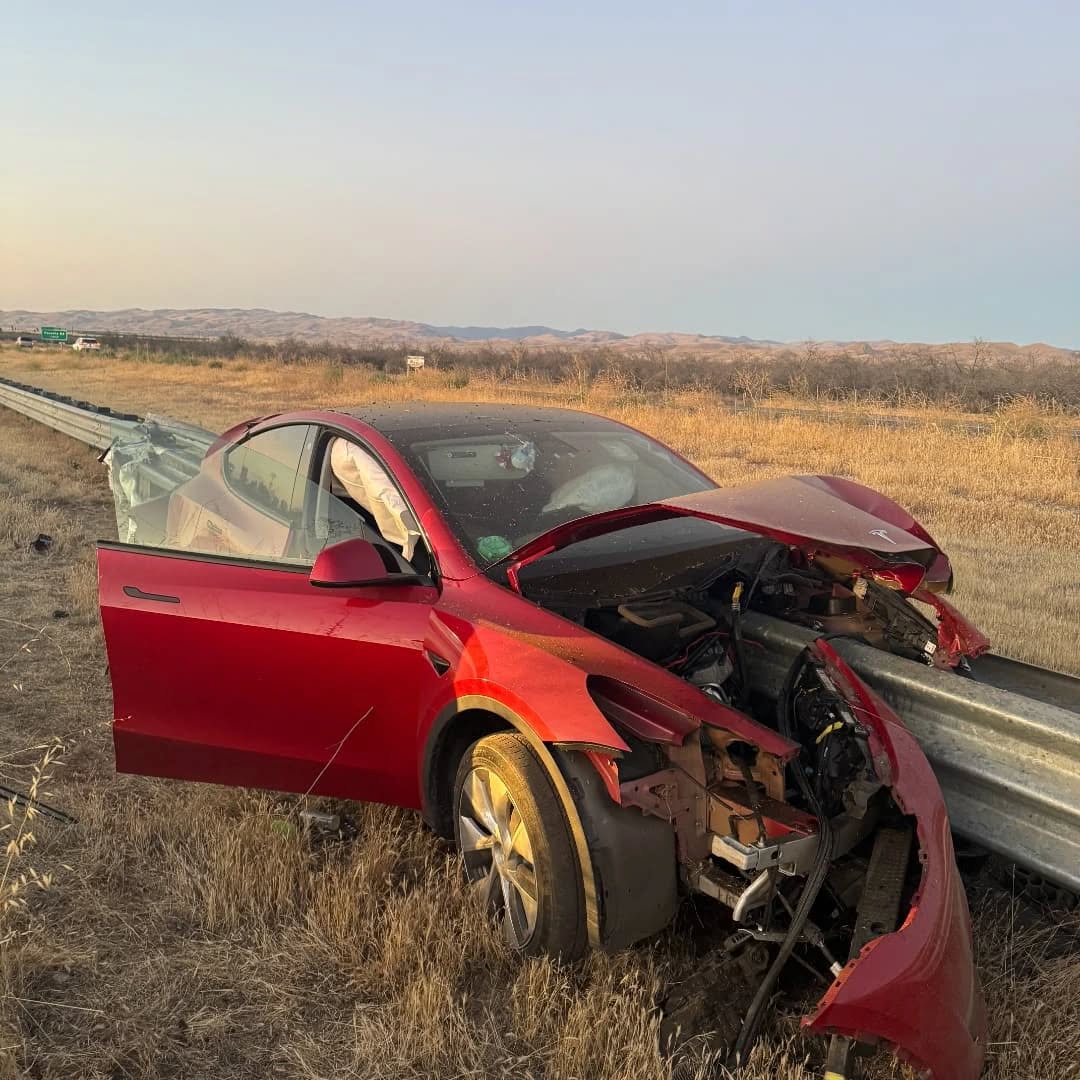
The driver of a Tesla Model Y survived and walked away from a harrowing accident on Monday in California, only sustaining minor injuries despite the vehicle being impaled by a guardrail.
On Monday morning around 4:34 a.m., the Los Banos division of the California Highway Patrol (CHP) responded to the accident on I-5 near Panoche Road, involving a 23-year-old in a Tesla Model Y. According to a post on social media, the driver veered off the road for unknown reasons in the northbound lane, before crashing directly into the guardrail and impaling the vehicle.
You can read the full message and photos from Los Banos CHP below, as were shared in a Facebook post on Monday afternoon.
This morning a Tesla model y was traveling in the #1 northbound lane of I-5 north of Panoche Rd. For unknown reasons driver allowed V-1 to veer off the roadway, travel through a dirt center divide, and crashed into the fixed metal guardrail. Lucky for the driver he only sustained minor injuries and was able to walk away. Driving a vehicle requires 100% attention to the road. Avoid distractions and focus on driving.
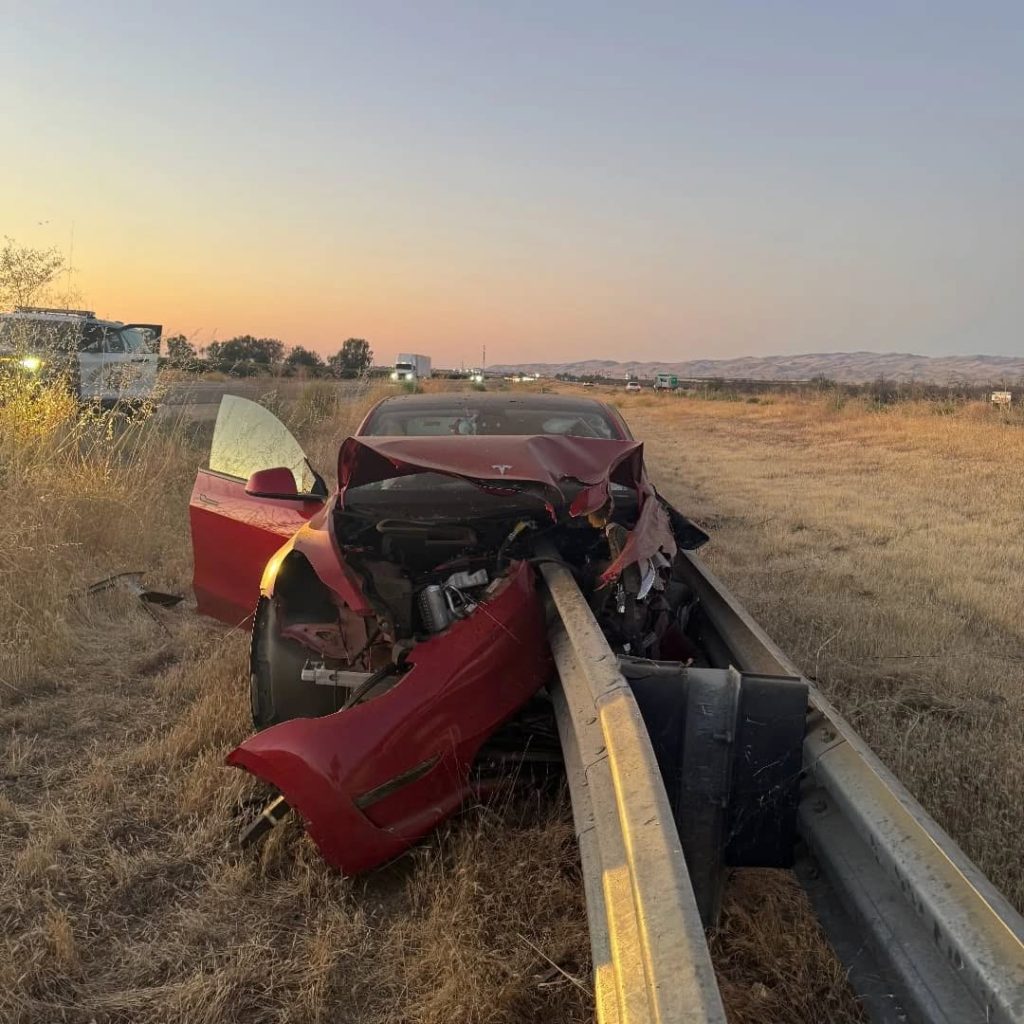
Credit: CHP Los Banos (via Facebook)
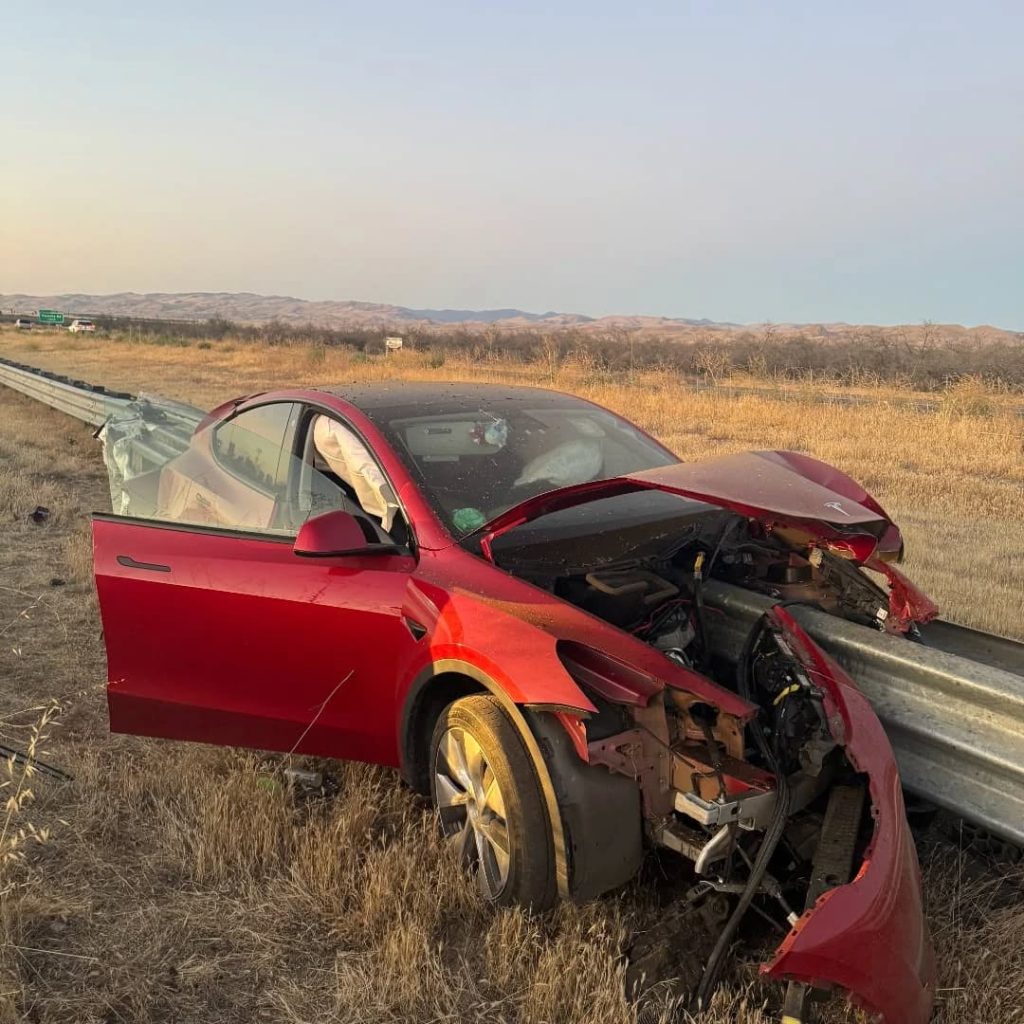
Credit: CHP Los Banos (via Facebook)
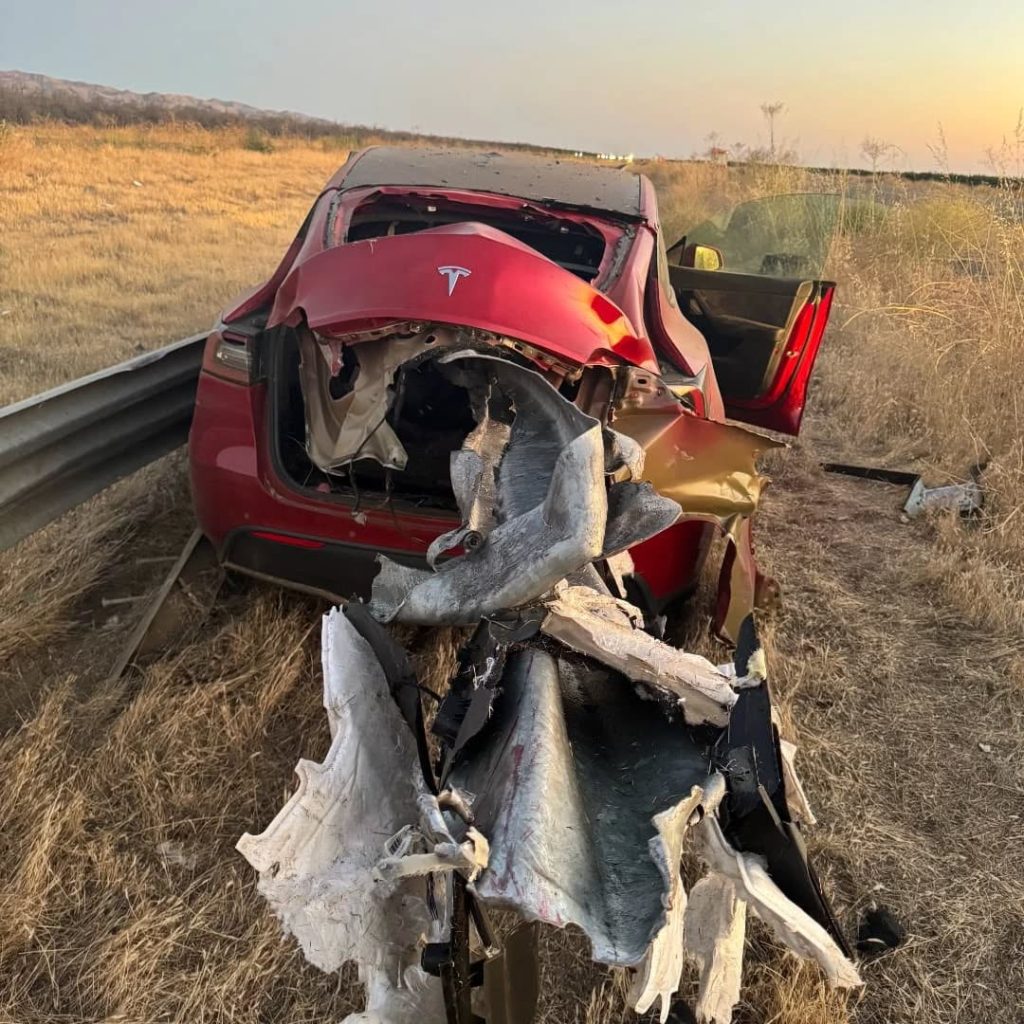
Credit: CHP Los Banos (via Facebook)
In a statement to SFGate, CHP officer Myles Anderson said that the driver only sustained minor injuries, while no arrests are made and drugs and alcohol are not suspected to have been involved. The report also notes that Tesla’s “cruise control and lane assistance features” were activated, according to Anderson. However, it’s not entirely clear if this is referring to Supervised Full Self-Driving (FSD), or to the cruise control and lane assist features baked into Autopilot.
At the time of writing, CHP has not yet responded to Teslarati’s request for clarification and additional details on the matter.
Tesla Crash Safety Ratings across its lineup: pic.twitter.com/ny30R7ceji
— TESLARATI (@Teslarati) July 1, 2025
READ MORE ON TESLA SAFETY: Tesla rolls out crucial new safety feature aimed at saving children
The news comes after Tesla has touted its vehicles as incredibly safe for many years. In December, for example, the company highlighted receiving top safety scores from regulators on four different continents throughout the world, including from the National Highway Traffic Safety Administration (NHTSA) and the Insurance Institute of Highway Safety (IIHS) in the U.S.
Tesla has also listed the goal of making its vehicles the safest on the road throughout the years, both in the overall design of its vehicles and in its Autopilot and Full Self-Driving (FSD) programs.
Tesla Model 3 ranks as the safest new car in Europe for 2025, per Euro NCAP tests
-

 Elon Musk1 week ago
Elon Musk1 week agoTesla investors will be shocked by Jim Cramer’s latest assessment
-

 News2 weeks ago
News2 weeks agoTesla Robotaxi’s biggest challenge seems to be this one thing
-

 News2 weeks ago
News2 weeks agoWatch the first true Tesla Robotaxi intervention by safety monitor
-

 Elon Musk1 week ago
Elon Musk1 week agoA Tesla just delivered itself to a customer autonomously, Elon Musk confirms
-

 News2 weeks ago
News2 weeks agoTesla Robotaxi rollout proves that Elon Musk still delivers, even if it’s late
-

 Elon Musk2 weeks ago
Elon Musk2 weeks agoxAI welcomes Memphis pollution results, environmental groups push back
-
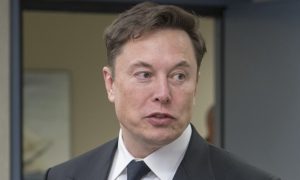
 Elon Musk2 weeks ago
Elon Musk2 weeks agoElon Musk commends Tesla team on successful Robotaxi launch
-

 Elon Musk2 weeks ago
Elon Musk2 weeks agoElon Musk confirms Tesla Optimus V3 already uses Grok voice AI




